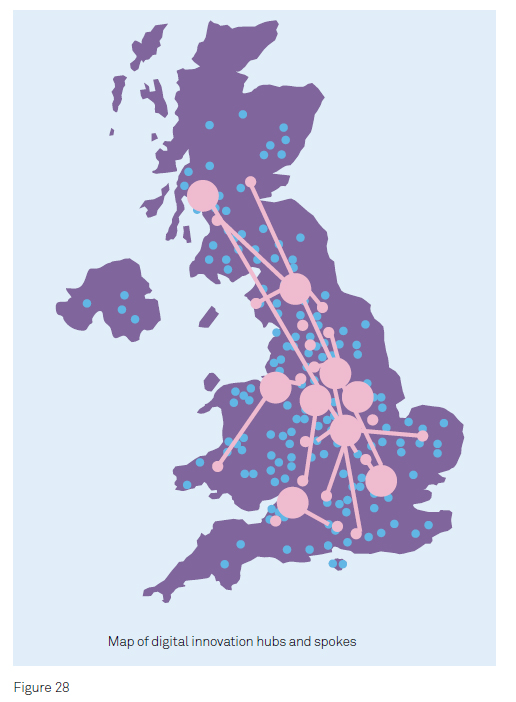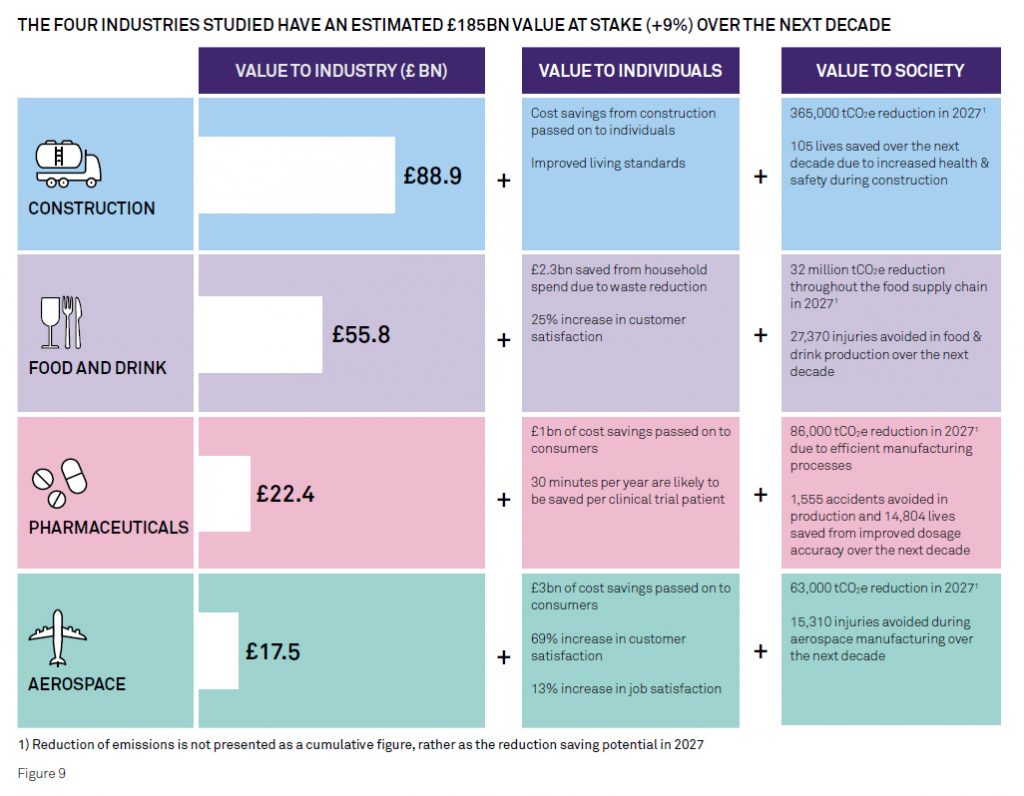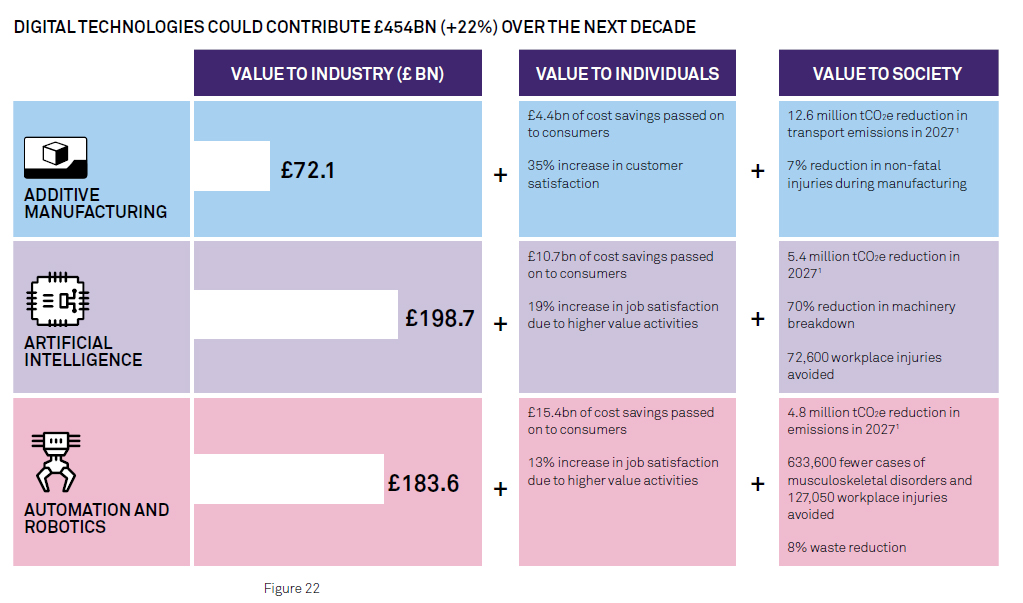An independent review of the UK’s manufacturing sector led by Jürgen Maier, CEO of Siemens UK, has reached completion. The Made Smarter Review Report calls for government and businesses to come together and embrace the nation’s potential as a leader of the Fourth Industrial Revolution (Industry 4.0).
The study follows earlier recommendations from AM UK and the UK Additive Manufacturing National Strategy 2018-2025, which also found that 3D printing will make a significant contribution to high-value manufacturing.
The Made Smarter Review Report
The Made Smarter Review Report looks at Additive manufacturing, artificial intelligence (AI) and automation/robotics were all been assessed for their potential added value to construction, food and drink, pharmaceutical and aerospace sectors, which represent 38% of UK manufacturing.
Added to the remaining 62% of industry, the named Intelligent Digital Technologies (IDTs) could generate an estimated £455 billion for UK manufacturing over the next decade, creating an estimated 175,000 jobs, and boosting industrial productivity by more than 25%.
Of the £455 billion estimate, additive manufacturing is responsible for £72.1 billion, benefiting society and the individual from both a cost and an environmental perspective.
“…the Government’s industrial strategy will need a red thread of digital running through its core,” writes Maier, “It will not be about reviving long gone industries but rather it will be about building the new ones, in AI, virtual reality, big data, machine learning, simulation platforms – the merging of creative digital tech and industrial tech.”
“This will form a new vibrant and growing ‘creation sector’; creating digital tech, software, algorithms, digital media, games and many agile digital factories.”
Adoption, innovation and leadership
The Made Smarter Review Report has been orchestrated by Maier in close collaboration with over 200 organizations including the Productivity Leadership Group (PLG), the Artificial Intelligence (AI) and Robotics and Autonomous Systems (RAS) Review teams, and the UK Additive Manufacturing Strategy Group.
In summary, the report is distilled into three key recommendations:
- Adoption – a digital ecosystem aimed at upskilling the country’s workforce, that will be piloted in the North West.
- Innovation – launching a new National Innovation Programme through 12 Digital Innovation Hubs across the country, 8 technology demonstration facilities, and 5 specialist digital research and development centers.
- Leadership – establishing the Made Smarter UK (MSUK) Commission to bring government and businesses together to pursue the shared goal of excellence in Industry 4.0.

£185 billion is at stake
By examining construction, food and drink, pharmaceutical and aerospace sectors, the report focuses on areas of industry not previously reviewed. Combined, these four sectors have an estimated £185 billion value at stake over the next ten years.

The £454 billion contribution by IDTs over the same period can be broken down as follows: £72.1 billion from additive manufacturing, £198.7 billion from AI and £183.6 billion from automation and robotics.

By comparison, additive manufacturing demonstrates the highest potential impact on carbon dioxide emissions, reducing its production by 12.6 million tonnes by the year 2027, as opposed to AI’s 5.4 million tonnes and automation’s 4.8 million. Overall, CO2 emissions could be cut by 4.5 by the year 2027.
Additive manufacturing is highlighted in particular for its added value to the UK’s thriving aerospace sector, including the presence of big players such as BAE Systems, and the academic effort from institutions like Cranfield University, the University of Birmingham and the University of Nottingham.
Read the report
The full 231 page Made Smarter Review Report offers further detail on UK manufacturing productivity levels, global positioning, the value of supply chain optimization, individual and societal benefits and recommendation for IDT adoption. You can find available for download at the top of the page online here. A governmental white paper response is due to be published before Christmas this year.
Keep up to speed with the progress of Industry 4.0 – like, follow and subscribe to 3D Printing Industry news updates. Cash in on additive manufacturing potential and register for 3D printing jobs here.
Featured image shows MadeSmarter.uk branding material: It’s time for an industrial revolution of your own. Image via The Made Smarter Review Report



